
THE YEAR OF THE LIMO:
SOME NOTES ON THE FILMS OF 2012
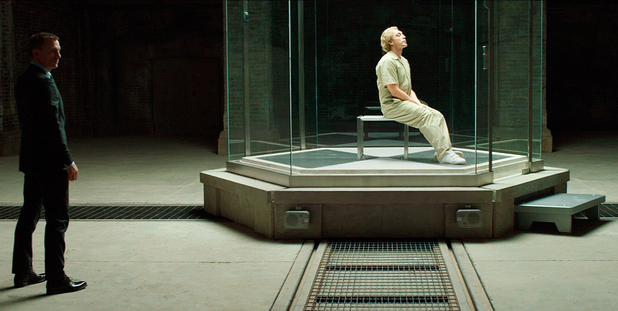
eric pfriender. page 2
PRETTY GREAT
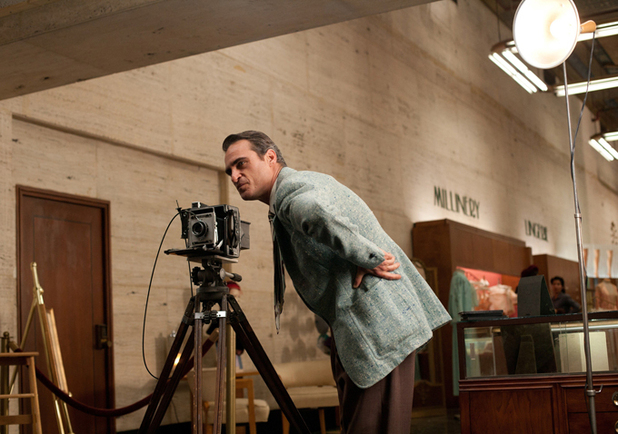
THE MASTER
The Master is Paul Thomas Anderson's first film since 2007's There Will Be Blood, which was the kind of universally-loved masterpiece that is tough to follow, and which was the film that cemented the "genius" label so many want to bestow on him. Added to this already considerable weight of expectation is the fact that The Master was supposed to be Anderson's long-awaited expose of the Church of Scientology. The anticipation fires were further stoked with Anderson touring the country with a 70mm print of the film, hosting surprise screenings in the weeks leading up to its release. If you were the kind of person who follows the AV Club's film writers and Cigarettes and Red Vines on twitter, your twitter feed exploded. Then the film came out, and it seemed like nobody knew quite what to make of it.
The Master is not quite the excoriation of Scientology that we all expected it was going to be. To be sure, it is a dense and mysterious film that doesn't give up a lot of easy answers. It is filled with scenes from within The Cause, its Scientology stand-in, but the belief system's methods are never fully explained to us, so when we watch long scenes of "processing," or even longer sequences of Freddy walking back and forth across the floor for days on end, it's impossible to know what to make of them. But if you try to dismiss whatever expectations you may have had for The Master, and approach it fresh, something strange and beautiful emerges.
The Master is a portrait of the damaged soul of man-child sailor Freddie Quell. It's an amazing performance from Joaquin Phoenix although, despite just using it, I hereby declare that "amazing performance" is a phrase that has no meaning. It's clear what the Academy thinks it means - histrionic scene-chewery - yet you could easily make a case that Bill Duke's performance in Predator and Mark Wahlberg's performance in I Heart Huckabees are two of the great American film performances of the last thirty years, but you're not going to see them on any lists. Some of the most moving art being made anywhere in the world right now is coming from Vinge and Müller's Norwegian theater company; their work involves re-staging Ibsen's plays with all of the actors wearing crudely-fashioned masks, with all of the dialogue pre-recorded and played through the house sound system - this bucks all conventional notions of "performance," yet I've been more moved watching clips from their work on youtube than say, Natalie Portman in hysterics for the bulk of the running time of Black Swan. Basically, I don't think I'm impressed anymore by what people seem to find impressive, and yet in Phoenix's Quell I find something true and damaged and weird and human, so maybe that's my new definition of "amazing performance." His chance meeting with Hoffman's Lancaster Dodd opens up a world of longing, mystery, temporary cures and false prophets, and it's here that the heart of the film lies. Yes, The Cause is bullshit, Anderson and Hoffman showing their hand in two perfectly precise meltdowns, but that's not the point. What difference does it make if the belief system you adhere to is about ancient lizards from outer space or time-traveling immortal souls or a zombie carpenter wine-enthusiast, so long as that system provides you with some degree of comfort and companionship as you move through this world? Who wouldn't walk back and forth across the floor of a room for a day and a half in exchange for a little understanding? If somebody wants to get you on a slow boat to China, it might just be worth it to tell them the truth and all of your secrets, without blinking.
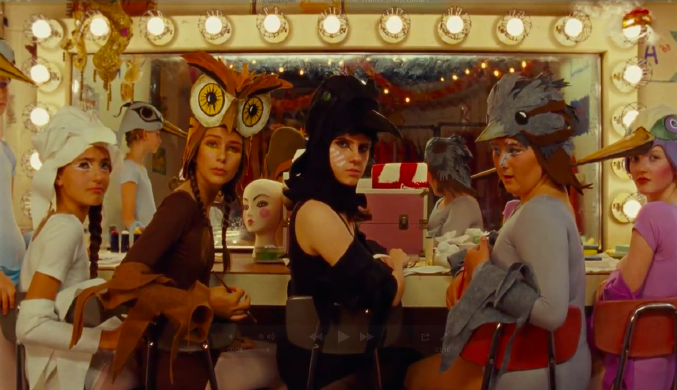
MOONRISE KINGDOM
Up until this year, for me, the cinema of Wes Anderson has been one of diminishing returns. It reached its apex somewhere between the goofy soul of Rushmore, when his idiosyncratic techniques still left room for some life and spontaneity, and the stiffer but sadder The Royal Tenenbaums. His obsessively art-directed schtick just didn't seem to work as well as the years went on, and Life Aquatic and Darjeeling Limited just were not effective for me. It's a common complaint, I know. But here's the thing: I still get excited enough to go see them when they come out. I'm hoping each new film will strike something in me the way the old classics did (christ, if Royal Tenenbaums is an "old classic" then maybe I am, too.) This year, by the time Moonrise Kingdom was released in June, with all the attendant hype a new Wes Anderson film entails, it had been so long since something I was even remotely interested in played in a theater that I lined up to see it opening day. And let me assure you - nothing will make you want to rethink your lifestyle choices than seeing yourself surrounded by the quasi-hipster thirty-somethings lined up to see the new Wes Anderson film at 11am on a Friday at the Regal Union Square Stadium 14. The realization that I wasn't walking past the line, but was in fact waiting in it, a part of it, in a blazer that suddenly felt very Max Fischery no less, threw me into an existential despair spiral that I may not have climbed out of yet.
The movie unspooled, and by the time it was over, I was reevaluating my stance on all that came before. It's not that Moonrise Kingdom is perfect, it's not. And it's not that it doesn't have some of the same qualities that made the earlier films annoying - it's clearly in line with the rest of Anderson's oeuvre. But there are moments in Moonrise Kingdom - Sam and Suzy's pen-pal correspondence, their Pierrot le fou-esque beachfront romantic interlude (including the fishhook-earring deflowering), Bob Balaban in general (but especially the way he's lit when the boats approach the shore at dawn; I can't tell if I hope the inevitable Criterion blu-ray is able to reproduce its wonder or if I want it to just remain a magical, unreplicable memory - nothing has ever looked that perfect), and that amazing flashback to when Sam first sees Suzy (“No; which bird are you?”), moments that boil down complex emotions into images and sounds in a way that is moving and true and beautiful. In other words, cinema.
I've since gone back and re-watched the films I thought I didn't like, and I like them now. They each have things that don't work, but they're also sprinkled with the same kinds of moments, little flashes of brilliance that only the best storytellers know how to create. Which is all a long way to say that thanks to Moonrise Kingdom, I'm a born again Wes Anderson fan.
SILVER LININGS PLAYBOOK
Utterly charming. See below.
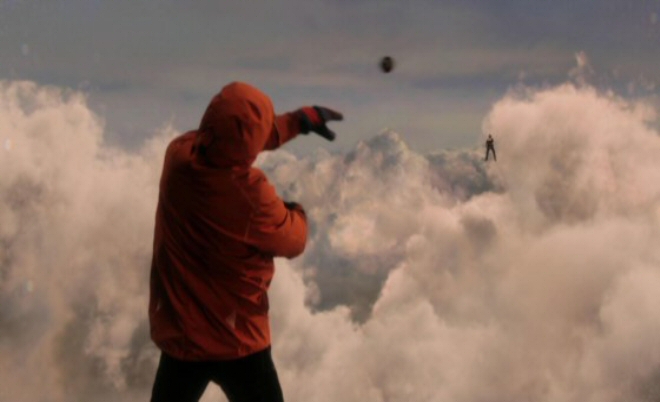
CHRONICLE
Every year I get pleasantly surprised by something that I liked without expecting to, or something that is better than it has any right to be. This year, Chronicle fit both bills. Noted expert on le cinema Chris Funderburg and I were actually on our way to see Liam Neeson punch some wolves in The Grey, and then standing in front of the ticket kiosk, we just sort of turned to each other and each asked something like "Um, do you have any interest in seeing Chronicle?" We both walked out very happy that we had decided to witness Chronicle's depiction of what happens when three teenagers discover a mysterious alien something-or-other and are inexplicably gifted with telekinetic powers. I've never had a problem with the recent fad of "found footage" style horror/ thrillers. I kind of liked Cloverfield, but that film is a good example of how the found footage gimmick can add some faux-verisimilitude to a film, but can also waste time finding rationalizations for why the events we're seeing are still being filmed. Chronicle gets a pass for that because the home video angle is well-executed and goes a long way towards making what we're watching seem believable, but also for the amazing moment when the teen who has been making the video diary realizes that he can use his powers to operate his own steadicam, thus allowing him to be on camera when there is no one around to film him. Other amazing moments: the sequence when the characters realize they can use their powers on themselves and start teaching themselves to fly; and the final showdown, which is exciting, inventive, and incorporates multiple "found footage" sources in a way that feels seamless. Movies like Chronicle come out every year, modest little features that are well-executed entertainments, and it's easy for them to end up forgotten a few years down the road. That would be a shame in this case, because Chronicle is a pleasant surprise, worth your time, and deserves to be remembered.
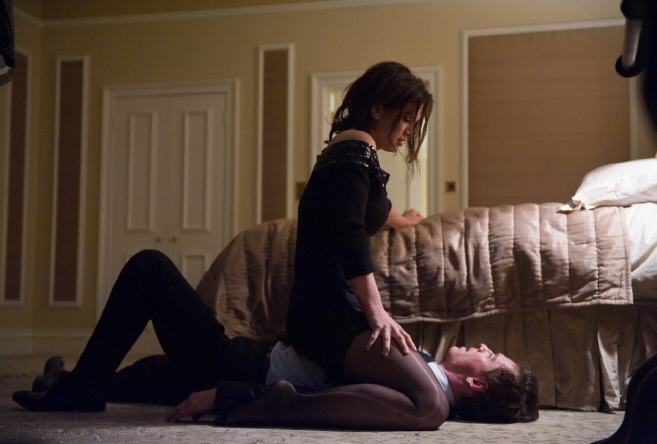
HAYWIRE and MAGIC MIKE
Soderbergh, I miss you already. I don't believe for a second that you are gone forever, but I respect that you're leaving, and I love the idea that you're basically just bored with narrative conventions and sick of shooting over-the-shoulder shots. These two movies aren't perfect, but they're both great examples of why it's been great having you around. Haywire came together when you saw Gina Carano fighting and thought "hey, it would be great to watch her kick a bunch of dudes' asses in a movie," then built a thriller around her. It's a thriller that plays with the idea of being a thriller without trying to deconstruct the genre. It's like you and screenwriter Lem Dobbs got all the genre elements you didn't really care about sorted out quickly (because it's just that easy for the two of you) and got them out of the way so you could play around with the things you wanted to play around with. The double-crosses and shady characters and macguffins are all there, but fuck me if I can remember what they are. What I do remember is Carano getting hot coffee thrown in her face, or the way there is no score during the fight sequences, so when she and Michael Fassbender beat the hell out of each other and destroy an upscale hotel room in the process, it sounds and looks and feels fucking brutal.
And Magic Mike, well... I kind of love that by this point in your career everyone's response to the idea of you making a movie about male strippers called Magic Mike starring Channing Tatum wasn't "that is going to be fucking awful." Even after seeing the trailer that made it look like it was in fact going to be fucking awful, everyone still kind of shrugged and said "I guess I'm going to go see the new Soderbergh movie, should be pretty interesting." And despite glossing over some of the scummier elements I imagine are prevalent in the male stripper scene and featuring some of my least-favorite Peter Andrews cinematography, it was pretty good. And because it was made cheaply, and because it was a movie about male strippers starring Channing Tatum and Matthew McCauna-hey, it was a massive financial success. Because of course it was. Good for you, Steve. Hope you come back soon. We'll be waiting.
NOBODY DOES IT BETTER
This is a new category this year, implemented to highlight the movies only Hollywood can make, because there's nothing quite like a well-executed popcorn movie. This year we're celebrating...
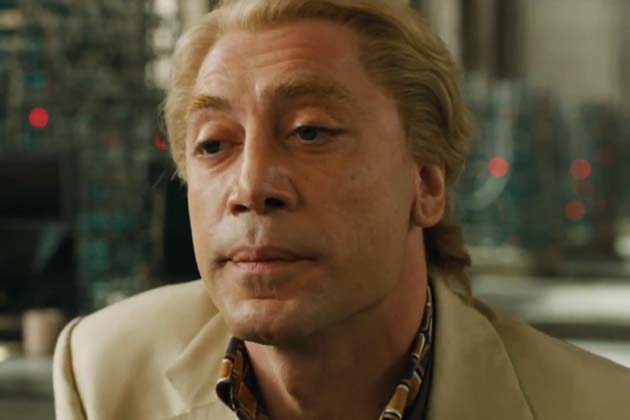
THE AVENGERS and SKYFALL
The most amazing thing to me about my liking The Avengers at all is that I could not possibly give less of a shit about the Avengers as a nerd institution. I found the endless post-credits appearances of Sam Jackson at the end of all of the Marvel movies annoying as hell, and if you put a gun to my head, I couldn't even tell you who the core team of superheroes that make up the Avengers even are. I had no intention of seeing it at all. Which is not to say I had any animosity towards the rise of Marvel, more like utter disinterest. Furthering my disinterest was my complete lack of knowledge about anything related to Joss Whedon, unless you count Toy Story and his seasons as a writer for Roseanne. Yet I had a free Saturday afternoon while my wife was out, and somehow I found myself at the mall watching The Avengers, because that's what was playing. And it. Was. Awesome. The action sequences were exciting, but what worked even better was the interplay between the characters. The Ruff's soulful portrayal of Bruce Banner was just what the Hulk has been missing in his last few cinematic incarnations, and Downey Jr. was his charming, wisecracking self as Tony Stark. Everything was clicking. The best thing about The Avengers is that it feels so much like a comic book. Has there ever been a more comicsy sequence in the movies than the assault on the S.H.I.E.L.D. helicarrier? The movie deserves every dollar it made.
Skyfall is a great example of a dumb movie made by smart people. Strip away the layers of craft, and there's not much separating this from some of the sillier entries in the fifty-year-old franchise. A flamboyantly theatrical villain so diabolical he's practically omniscient (at one point he blows up a wall in a tunnel, causing a train to nearly kill Bond - this would be ridiculous enough without considering that he has apparently been planning every element of this scenario for years, somehow anticipating Bond standing in that very place after a prison escape and subsequent chase sequence), motorcycle chases across Tangier rooftops, cranes tearing moving trains apart. It's ridiculous...but it seems awfully silly to hate a Bond film for being a Bond film. It's the craft - smart, talented film craftsmen tackling the material and bringing it to the next level - that makes Skyfall great. It's worth seeing for Roger Deakins' cinematography alone; the film is gorgeous. It's littered with great-looking set pieces and winking nods to the franchise's roots that never devolve into silliness. Craig owns his version of Bond, and how can you say no to a movie that introduces its Bardem-performed villain with a long, single shot monologue about teaching rats to kill each other? Skyfall is smart and fun, and a perfect example of what happens when you hire talented people to do their jobs.
THE ACADEMY
Having written this section, I already feel guilty for thinking about, and thus validating, the very idea of the Academy Awards, and I'm already pretty sure I won't be doing this again. But I went to all the trouble of seeing these (or most of these, anyway), so here you go: this is what I think about the movies that the people who make movies in America think are the best they can do, assembled roughly in decreasing order of my level of respect for them.
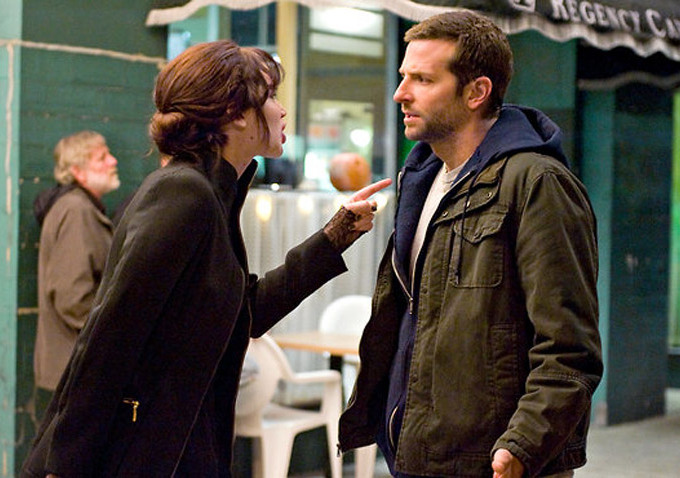
SILVER LININGS PLAYBOOK
It's the Philadelphiest - a Wellbutrin-laced cheesesteak spiked on the dance floor, wit' onions. Impossible not to like. If I were rooting for something on this list to win Best Picture (instead of rooting for the entire cinema-industrial complex to just be swallowed up by the earth on the evening of Feb 24th so we can start fresh), I'd be rooting for Silver Linings Playbook. A great example of a film that is a populist entertainment while simultaneously being a smart and personal statement. I love the way the film isn't afraid to be silly or zany, like the way characters just show up at any location whenever it's convenient for them to pop up. While the movie does have a classic Hollywood happy ending, it's nevertheless pretty smart about mental illness. I love that everyone in the movie is damaged, whether or not they have been diagnosed.
Double points for coaxing De Niro to give a good performance in something worth giving a shit about for the first time in twenty years.
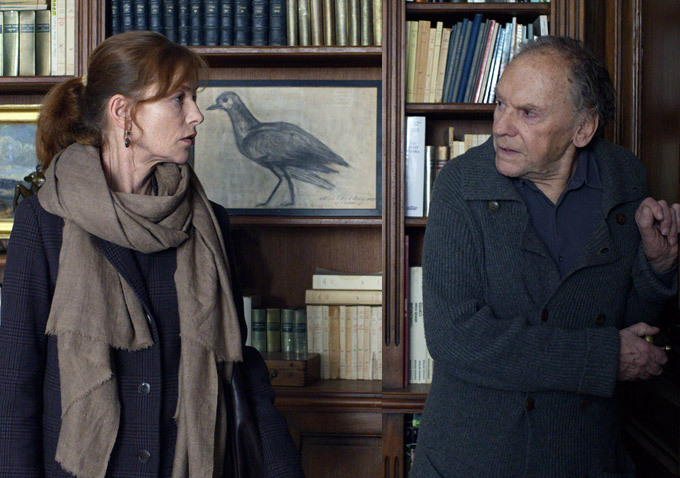
AMOUR
Early press and praise for Amour promised a Michael Haneke-directed portrait of the debilitating effects of old age, and love in the face of impending death. So I went to go see it. And that's exactly what I saw. There were no surprises, really; I got exactly what I paid for. If this weren't a highly-touted, Palmes d'Or-winning Michael Haneke film, that would have been enough. But it was, and so this feels somehow disappointing. The performances are great, the direction is cold and exacting, but still...liked it, didn't love it. I will say this: these are strange times indeed when Haneke is going to the Oscars with a film in which the most suspenseful scene involves eighty-year-old Jean-Louis Trintignant trying to shuffle a pigeon out of his hallway and back out the window.
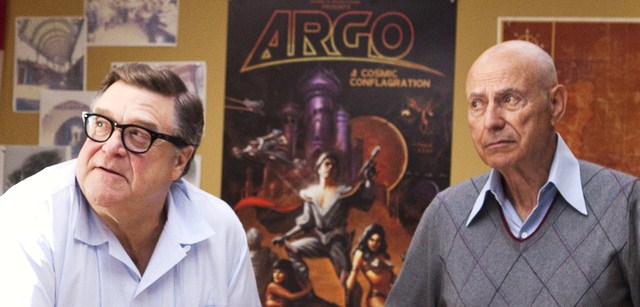
ARGO
Twenty bucks says your dad loves this movie. There's nothing really wrong with Argo, it's just such a wisp of a movie, it's almost like it's not there at all. The jokes feel easy, and the suspense feels built into the premise, less crafted than inherent. I just can't help but see it as a sign of our declining values as a society that somehow, in 2013, we as a nation have come together to root for Matt Damon's less-talented cousin to steamroll over all of the awards presentations on his way to a Best Picture win as some kind of retribution for him not getting a Best Director nomination. Especially since one of a director's most important responsibilities is casting the right actors, and Ben Affleck cast Ben Affleck as Johnny Argo, which was obviously a terrible idea. On a related note: why can't Affleck walk up to houses properly at the end of movies? Watch the last minute of this and Good Will Hunting back-to-back and tell me he doesn't have some kind of developmental disability that prevents him from using a normal gait to approach emotionally symbolic third-act structures.
Alan Arkin really Arkins the hell outta the four minutes of the movie that he appears in.
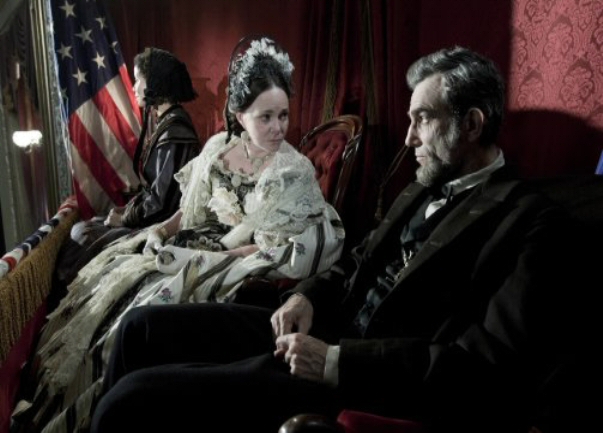
LINCOLN
I guess I liked this, but I also fell asleep twice trying to watch it, which means it took me three tries to get through it, so I don't know how much that recommendation is really good for. Nevertheless, it's a pretty good movie about the difference between "compromising" and "being compromised." Tempting to make a joke about how I knew how it was going to end, but I totally didn't! Spielberg and Kushner were too dignified to show us the assassination. I wish he had shot a film about Booth, concurrently, Eastwood-U.S./Japanese Iwo Jima twin flick-style: it's a genuine pleasure to watch Spielberg's crack production team recreate Civil War-era America, and I gladly would have spent some more time there provided that time wasn't centered around people sitting around tables talking about vote counts. That said, I loved Kaminsky's cinematography - those vote-count conversations take place almost entirely in dimly-lit rooms, and he managed to make them all seem both natural and beautiful.
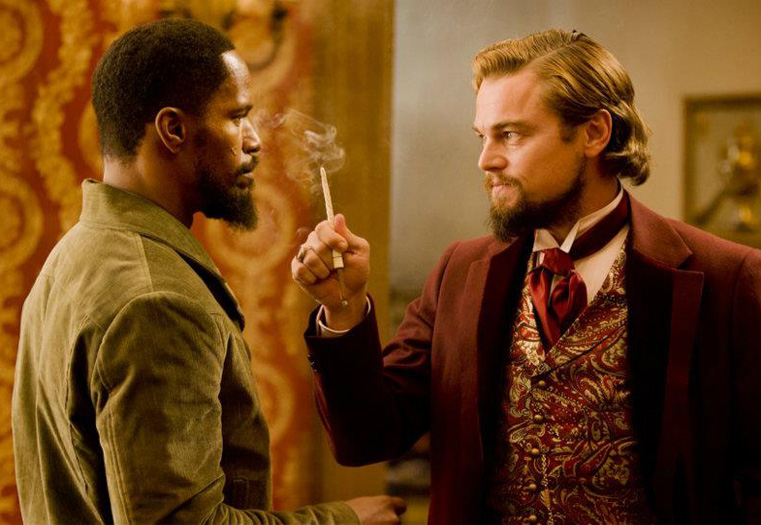
DJANGO UNCHAINED
Remember when this movie had a pretty good ending with that epic shootout, and then weirdly lasted another thirty-to-forty minutes with no payoff whatsoever? Why couldn't the late demise of a lead character have just been moved up and incorporate into the film's climax? QT needs someone near him who says "No." The dude is talented, but everyone needs a fucking editor. Jesus.
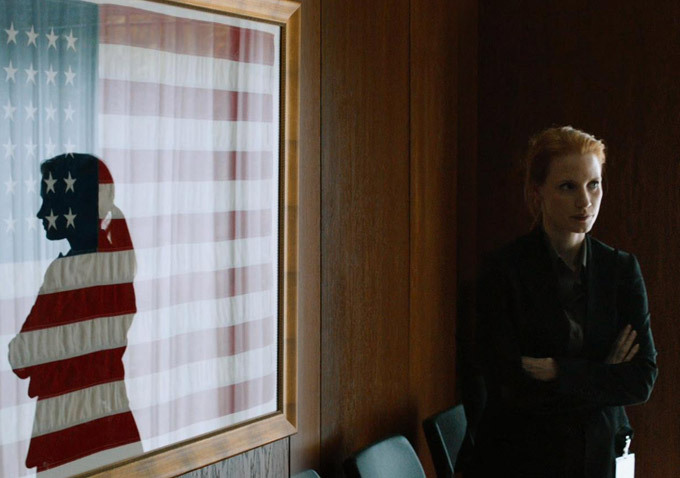
ZERO DARK THIRTY
I can say this: I thought Zero Dark Thirty was better than The Hurt Locker. Of course, I thought The Hurt Locker was awful, so...I want to get behind Kathryn Bigelow. I really do. This is the woman who brought us Point Break, after all, so she's more or less got a lifetime pass from me. That said, I am mystified by the critical adoration she has received for her last two films. The Hurt Locker had a laughable script. It was terrible - from the protagonist's clichéd relationship with his wife to his stupid scenes with the little Iraqi boy who just wants to play soccer and sell him bootleg dvds to the terrible scenes depicting the camaraderie between the soldiers in Renner's unit. Now Bigelow and screenwriter Mark Boal are back with Zero Dark Thirty, the untold story of the decade-long manhunt for OBL. It features the year's most overrated performance in Jessica Chastain's Maya (you know she's tough because she writes on her boss' window with a dry-erase marker- she don't give a fuck!) Unclear why she's being held up as some kind of feminist icon: "Can you believe it was all because of a woman that we caught bin Ladin?" feels like a sexist thought process to me. (Yes, I can believe it. I think it's weird that you were surprised. It's like Hurt Locker all over again: "Can you believe a woman directed this amazing war movie?" Um, yeah. It's Kathryn Bigelow. She's been making dope action films since the late eighties. "Somebody give her an OSCAR!!!") There's some cool stuff in here: the hotel bombing is a total shock, and it's terrifying. But there's just as much stuff that doesn't work at all: the bombing at the base isn't a shock, and it's telegraphed terribly. The climax was ok, I guess, but how much different is this than Black Hawk Down? For that matter, aside from some "based on a true story" elements, how much is separating this from Peter Berg's The Kingdom?
As for the torture controversy: if the people on TV and in our government had shown the same level of interest in whether or not our country should start a fucking war with Iraq as they did in whether or not a Hollywood movie massaged the truth in depicting torture's role in the manhunt, Zero Dark Thirty could have been the untold story of the three-year-long manhunt for OBL. Dear everybody: do your fucking jobs. Instead of getting yourself all worked up about whether or not a bunch of people who dress up in costumes and make things up for a living made something up in 2012, how about we get all worked up about an ACTUAL PROGRAM OF INSTITUTIONALIZED TORTURE RUN BY THE US GOVERNMENT STARTING TEN FUCKING YEARS AGO.
Anyway, what I'm trying to say is that if Christopher Nolan hadn't made a movie about the world's most self-serious costume party this year, Zero Dark Thirty would easily have been the most overrated film 2012.
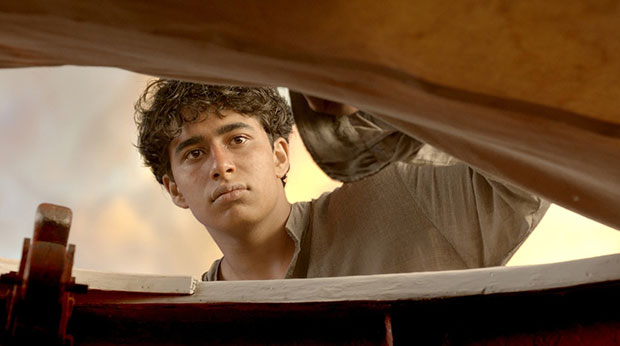
LIFE OF PI
I didn't see this, but honestly, haven't I given Ang Lee enough chances? I haven't been able to tolerate anything he's made since The Ice Storm. I'm certainly not going to willingly submit myself to another one of these fucking "well-respected filmmaker makes a 3-D prestige film and really tests the limits of the new format" pieces of garbage. I still haven't been able to watch more than fifteen minutes of Hugo.
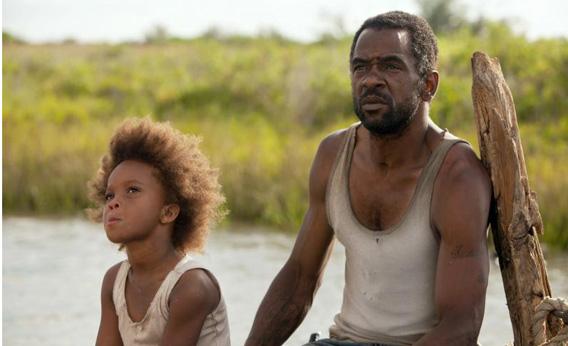
BEASTS OF THE SOUTHERN WILD
I didn't see this. It looks pandering and faux-interesting. My guess is that nobody will be thinking about this movie in three years.
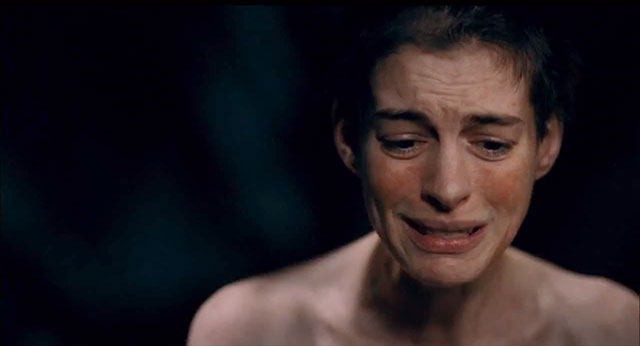
LES MISERABLES
I didn't see this, but it looks like it barely qualifies as a "film." I will say this: I saw a commercial for it in the theater before Moonrise Kingdom in June. Not a trailer; a commercial, before the trailers started. It was a three-to-five minute little behind-the-scenes wank piece in which Tom Hooper talked about his "revolutionary" approach to filming a musical, allowing the actors to record their singing on-set, to add subtlety and "acting" to the performances, and in which Anne Hathaway basically started her Oscar campaign. She was doing an EPK-style interview, talking about how delicate her singing of whatever fucking song the hooker character is supposed to tear-up the audience with. Basically, telling idiots what to think about something before they see it. Seeing this commercial six months before the movie was released crystallized for me what should have been obvious anyway - the whole thing exists only to suck money from people who are the built-in fan base for this thing, and to win Hathaway an Oscar. I am neither the built-in fan base nor am I Anne Hathaway, so I saw no reason to investigate further.
INEXPLICABLY OVERRATED
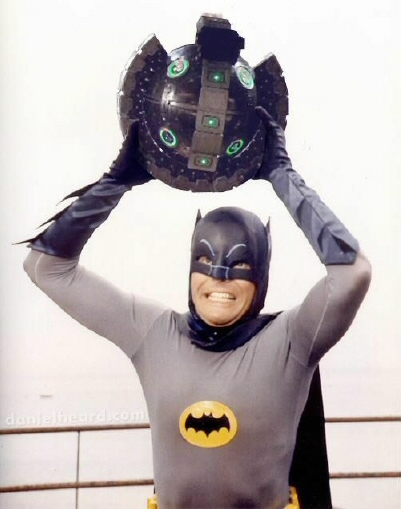
THE DARK KNIGHT RISES
My plan was to really lay into this, to write a two thousand word diatribe about how terrible it is. I've been formulating what I wanted to say for six months now, but then when I sat down to actually write it, I realized I was going to have to watch the movie again in order to properly tear it to pieces, and I really don't want to do that.
Honestly, there are a lot of elements to this film that I'm pretty sure just make no sense at all. (What was the villain's plan? To prove society will tear itself apart if he releases all of Gotham's prisoners and gives them all AK-47's? Um, hypothesis proven, Bane. A-plus.) So since I refuse to pay more money in order to watch this thing again, I'm basically just left with the image from late in the film of Commissioner Gordon standing next to two people in leather pajamas in broad daylight, all of them around some kind of giant round bomb, all talking in deathly serious tones about how to deal with the situation, and all I could think while watching it was that it was the single worst minute of cinema I've seen since any random minute from Attack of the Clones. If Nolan set out to make us take a comic book seriously, I think it's safe to say he failed. Forget the fact that we're watching a Batman movie in which Batman almost never appears. Forget that 30 minute sequence where we have to watch Bruce Wayne go to some kind of dungeon chiropractor and then learn to symbolically rock climb before we can see the end of the movie. Forget the random peppering of current events thrown in to add fake depth and real-world significance ("Look, Occupy Wall Street! Civil unrest due to economic inequality! We're holding a mirror up to society!") Forget the 40 minutes we spend watching Gordon run around Gotham drawing things on trucks with chalk in some kind of incomprehensible plan to track a moving bomb. Why does the bomb have to move? You've taken over the city. It's like they came up with the idea of a moving bomb, and then instead of eventually ditching the idea for one that makes sense, they just kept writing more and more complicated schemes around it until the last act of the movie was as boring as possible. The whole movie is like that - it feels as if they had a brainstorming session for script ideas, and then misinterpreted the maxim "there are no bad ideas in brainstorming," and just kept all of them and wrote some dialogue around it. Inconceivably terrible. You only need to see one thing to understand what the film is: that image of three people, two of them in extremely silly looking outfits, next to a hilariously round bomb, not one of them laughing.
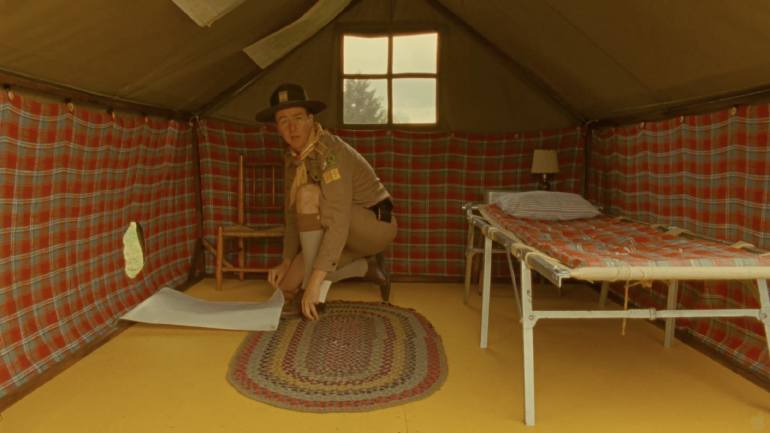
<<Previous Page 1 2 Next Page>>
home about contact us featured writings years in review film productions
All rights reserved The Pink Smoke © 2013